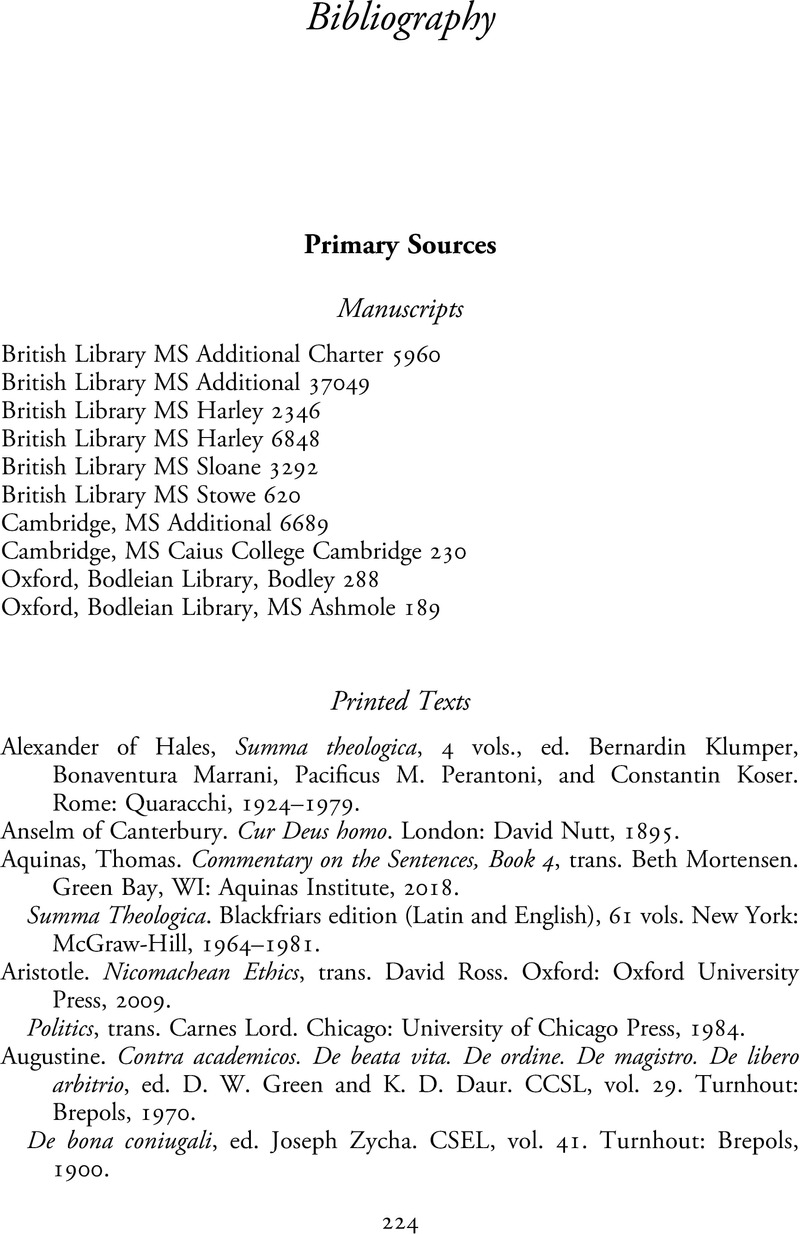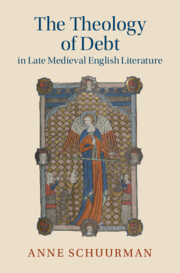Book contents
- The Theology of Debt in Late Medieval English Literature
- Cambridge Studies in Medieval Literature
- The Theology of Debt in Late Medieval English Literature
- Copyright page
- Dedication
- Contents
- Acknowledgements
- Abbreviations
- Introduction
- Chapter 1 Counterfeit Money
- Chapter 2 Secret Debts
- Chapter 3 Home Economics
- Chapter 4 “What is ynogh to mene”
- Chapter 5 Piers Plowman and the Inappropriable
- Epilogue
- Notes
- Bibliography
- Index
- Cambridge Studies in Medieval Literature
- References
Bibliography
Published online by Cambridge University Press: 04 January 2024
- The Theology of Debt in Late Medieval English Literature
- Cambridge Studies in Medieval Literature
- The Theology of Debt in Late Medieval English Literature
- Copyright page
- Dedication
- Contents
- Acknowledgements
- Abbreviations
- Introduction
- Chapter 1 Counterfeit Money
- Chapter 2 Secret Debts
- Chapter 3 Home Economics
- Chapter 4 “What is ynogh to mene”
- Chapter 5 Piers Plowman and the Inappropriable
- Epilogue
- Notes
- Bibliography
- Index
- Cambridge Studies in Medieval Literature
- References
Summary

- Type
- Chapter
- Information
- The Theology of Debt in Late Medieval English Literature , pp. 224 - 247Publisher: Cambridge University PressPrint publication year: 2024



